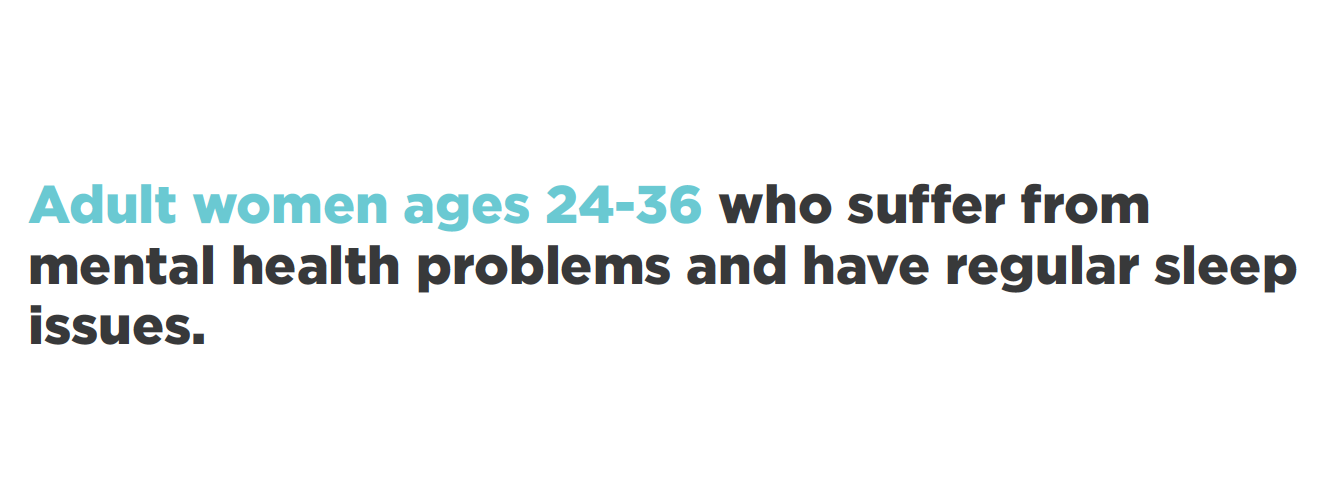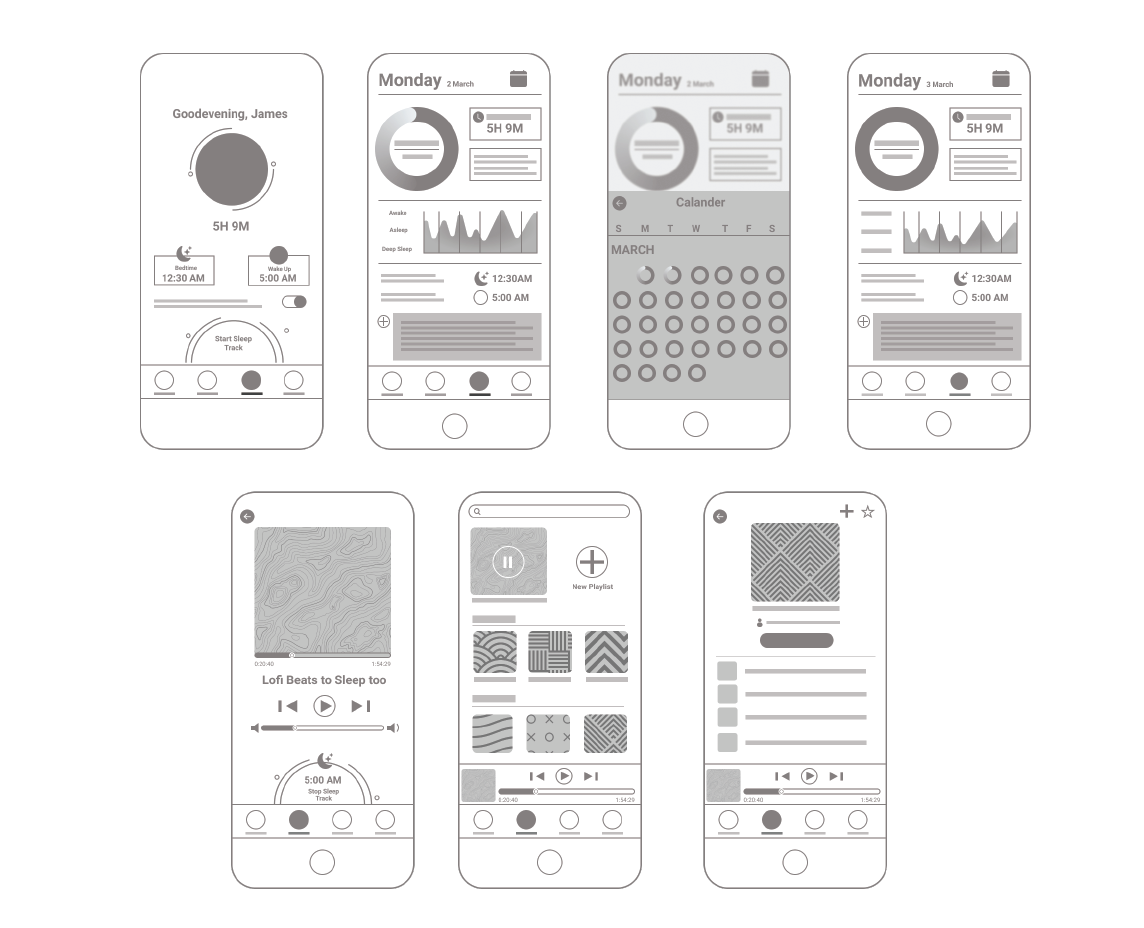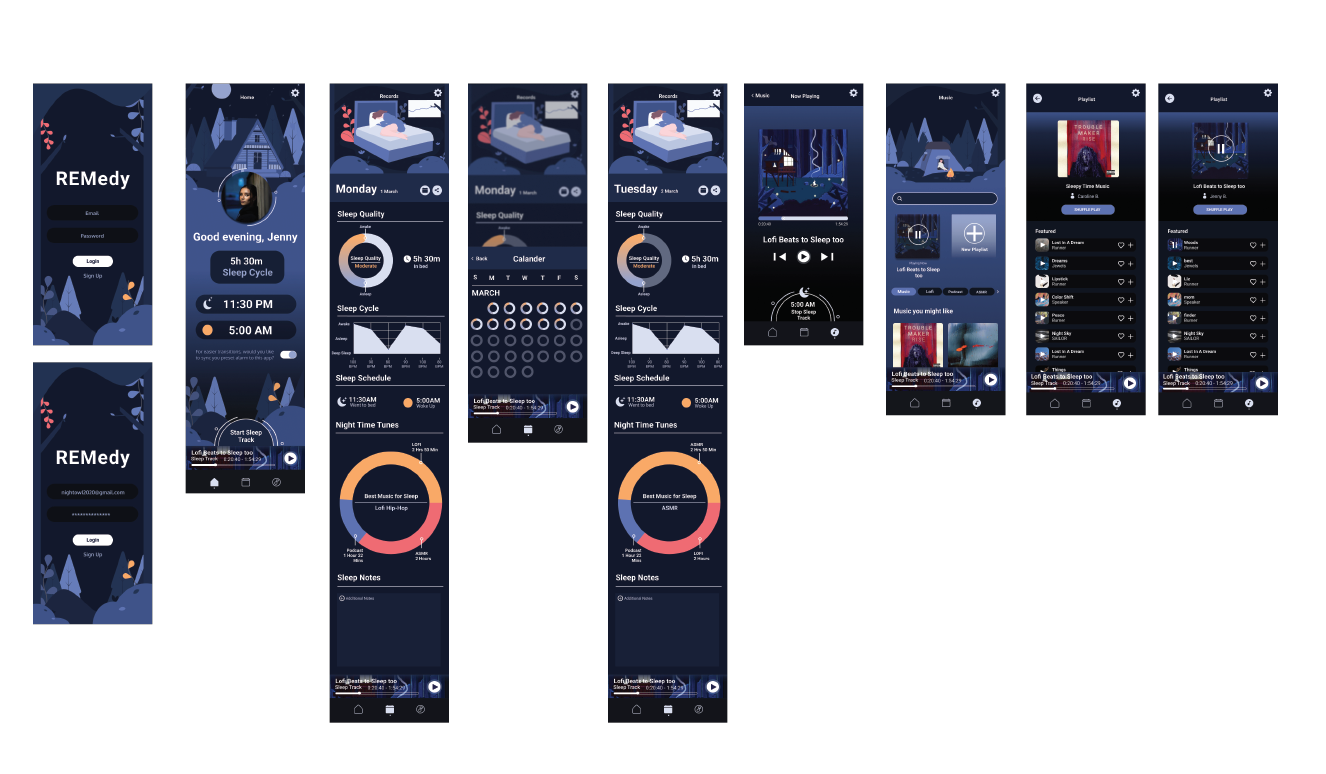RemEDY Sleep app
UX/UI
Figma
Sleep is a key function for any adult to operate and complete daily tasks. A large number of the populous suffer from irregular sleep patterns
or insomnia due to mental hurdles in their everyday lives. As a result, they turn to quick and easy methods such as pharmaceutical prescriptions to
help balance their sleeping habits, which can have long-term negative effects on their health. REMedy is a mobile application used to ensure users get the
goodnight's sleep they deserve. Using tailored music and sound choices along with tracking technology a user is able to achieve a restful night’s sleep.
Problem
A large number of the populous suffer from irregular sleep patterns or insomnia due to mental hurdles in their everyday lives. As a result, they turn to quick and easy methods such as pharmaceutical prescriptions to help balance their sleeping habits, which can have long-term negative effects on their health.
In the United States, a survey by the National Ambulatory Medical Care suggested a 293% increase in the number of sleep related prescriptions from 5.3 to 20.8 million prescriptions from 1999 to 2010 Pharmaceutical sleep aids have been linked to negative side effects that increase with long-term use.
Include: Nausea, dizziness, dependency, withdrawal, amnesia, seizures, and even an increase in mortality
Framing Design Challenge
To focus more on the need of my audience I decided to frame my design challenge question as to the following. This was the main pain point we as the designer wanted to help solve for our users with our product.
Need Statement for User
After framing our design challenge we further broke down our statement to truly understand: who our user was, what the user truly needed from this app, and what they would gain as a benefit from their major pain point using this app.
11 question Survey Responses
This is a collection of data from my anonymous Google Survey of 11 questions around sleep and mental disorders from potential users. During my research, I observed a small random group of users who answered my questions about their sleeping habits. I quickly learned the main contributing factor out of the 21 individuals who I surveyed. All had the contributing factors of STRESS which agitated their Insomnia.
Key Insights
During my research on this topic, I pulled some great key points. Such as who my target audience is, what may be the reason for their active insomnia/irregular sleep patterns, what are some of the ways they use to manage their sleeping habits. Using informative supporting secondary research from credited medical journals on the topic.
Demographic
Not to say that men don’t suffer from the effects of insomnia. It’s just that older women are more prone to its effects. Factors such as increasing age, the presence of chronic disease, troublesome drinking, anxiety, depression, vasomotor symptoms, and drug use (hypnotics and hormone therapy) were significant risk factors related to the presence of sleep disturbances in different research studies.







